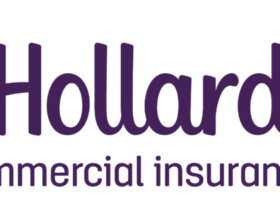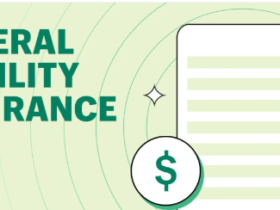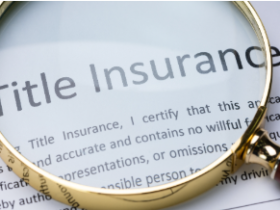Business Insurance
Running a business involves numerous risks, from natural disasters to lawsuits and everything in between. To protect your company’s assets, operations, and future, business insurance is a must-have. But with so many types of coverage available, choosing the right policies can feel overwhelming.
This comprehensive guide will explain what business insurance is, why it’s essential, the types of coverage available, and how to choose the best policy for your business.
What Is Business Insurance?
Business insurance is a broad term for various insurance policies designed to protect businesses from financial losses due to accidents, natural disasters, lawsuits, and other risks. It offers financial security by covering property, liability, and employee-related risks, ensuring your company can continue operations even after unexpected setbacks.
Why Is Business Insurance Important?
1. Risk Mitigation
Every business faces risks, from property damage to lawsuits. Insurance helps mitigate these risks by transferring the financial burden to the insurer.
2. Legal Compliance
Certain types of insurance, such as workers’ compensation or liability insurance, are legally required depending on your location and industry.
3. Protects Your Assets
Business insurance safeguards your physical assets, such as buildings, equipment, and inventory, against theft, fire, or other damages.
4. Reputation Protection
Errors or accidents could harm your company’s reputation. Liability insurance can cover damages, allowing you to focus on rebuilding trust with customers.
5. Employee Safety
Workers’ compensation insurance ensures your employees are protected in case of injuries, demonstrating your commitment to their well-being.
Types of Business Insurance
Choosing the right type of insurance depends on your business size, industry, and specific risks. Below are the most common types of business insurance:
1. General Liability Insurance
- What It Covers:
- Claims of bodily injury, property damage, or personal injury caused by your business operations, products, or employees.
- Who Needs It:
- All businesses, especially those interacting with customers or clients.
2. Professional Liability Insurance
- What It Covers:
- Claims of negligence, errors, or omissions in professional services.
- Who Needs It:
- Professionals like consultants, accountants, and lawyers.
3. Commercial Property Insurance
- What It Covers:
- Damage to your business property caused by fire, theft, vandalism, or natural disasters.
- Who Needs It:
- Businesses with physical assets, including offices, warehouses, or retail stores.
4. Workers’ Compensation Insurance
- What It Covers:
- Medical expenses, lost wages, and disability benefits for employees injured on the job.
- Who Needs It:
- Legally required for businesses with employees in most locations.
5. Business Interruption Insurance
- What It Covers:
- Loss of income due to events that disrupt normal business operations, such as natural disasters.
- Who Needs It:
- Businesses in disaster-prone areas or those relying on physical locations.
6. Cyber Liability Insurance
- What It Covers:
- Costs related to data breaches, cyberattacks, and loss of sensitive customer information.
- Who Needs It:
- Businesses handling sensitive data or operating online platforms.
7. Product Liability Insurance
- What It Covers:
- Claims arising from defective or harmful products.
- Who Needs It:
- Manufacturers, wholesalers, and retailers.
8. Commercial Auto Insurance
- What It Covers:
- Damages or injuries caused by vehicles used for business purposes.
- Who Needs It:
- Businesses with company-owned vehicles.
9. Key Person Insurance
- What It Covers:
- Financial losses resulting from the death or disability of a key employee or executive.
- Who Needs It:
- Small businesses and startups heavily reliant on specific individuals.
How to Choose the Right Business Insurance
1. Assess Your Risks
Identify the unique risks your business faces. For example, a restaurant may need general liability and property insurance, while an IT company may require cyber liability insurance.
2. Understand Legal Requirements
Ensure compliance with local, state, or industry-specific insurance mandates.
3. Determine Your Budget
Balance adequate coverage with affordability. Underinsuring can leave you vulnerable, while overinsuring may strain your finances.
4. Work with a Broker or Agent
A professional insurance broker can help tailor a policy to your specific needs.
5. Compare Policies
Request quotes from multiple providers and compare coverage options, premiums, and deductibles.
Factors That Affect Business Insurance Costs
- Industry Type: High-risk industries, such as construction, typically have higher premiums.
- Business Size: Larger businesses with more employees or assets may require higher coverage limits.
- Location: Operating in areas prone to natural disasters or high crime rates increases premiums.
- Claims History: A history of frequent claims can result in higher rates.
- Coverage Limits: Higher coverage amounts lead to higher premiums.
Benefits of Business Insurance
1. Protects Against Financial Losses
Covers costs associated with property damage, lawsuits, and unexpected interruptions.
2. Ensures Business Continuity
Business interruption insurance helps maintain cash flow during disruptions.
3. Improves Credibility
Having business insurance can boost customer trust and enhance your reputation.
4. Attracts and Retains Employees
Providing workers’ compensation and other benefits demonstrates your commitment to employee welfare.
5. Legal Compliance
Meeting mandatory insurance requirements ensures your business operates within the law.
Tips for Lowering Business Insurance Costs
- Bundle Policies: Many insurers offer discounts when you purchase multiple policies from them.
- Increase Deductibles: Opting for a higher deductible can lower your premiums.
- Implement Risk Management: Reduce risks with safety protocols, employee training, and cybersecurity measures.
- Review Your Coverage Regularly: Ensure you’re not overinsured or paying for unnecessary coverage.
- Shop Around: Compare quotes from different insurers to find the best value.
Common Myths About Business Insurance
- Small Businesses Don’t Need Insurance: Even small businesses face risks like lawsuits and property damage.
- General Liability Covers Everything: Additional policies may be needed for comprehensive coverage.
- Home-Based Businesses Are Covered by Homeowners Insurance: Homeowners insurance typically excludes business-related risks.
Conclusion
Business insurance is an essential investment that protects your company from financial risks and legal liabilities. By understanding the types of coverage available and tailoring policies to your specific needs, you can safeguard your assets, employees, and operations.
No matter the size or industry, having the right business insurance gives you the confidence to focus on growth and success, knowing you’re prepared for whatever challenges come your way. Take the time to assess your risks, compare policies, and secure the coverage your business deserves










Leave a Reply
View Comments